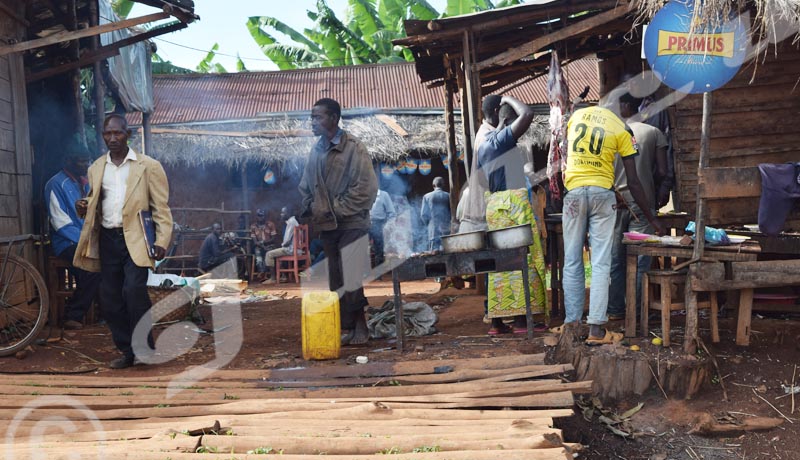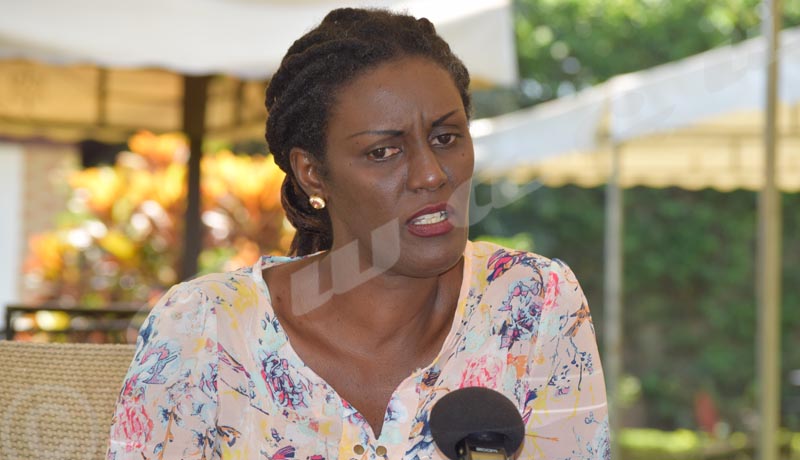The administrator of Musongati commune in Rutana province took the measure prohibiting any woman from entering a bar or market after 7 p.m. without being accompanied by her husband. Women oppose the measure while men exult.

In the bars of the center of Musongati commune, the curfew on women is the only thing that’s talked about.
“Some women get drunk, commit adultery and thus destabilize their homes …” explained Jean-Damascene Arakaza, the administrator of Musongati commune of Rutana province, in his statement issued on May 6. He says that these “immoral” women from the locality are known.
At Musongati, in bars, markets, on the street … people talk about the curfew on women. The decision recently taken by the administrator provokes a heated debate.
In a blazing sun, there are several bars along the small center of Musongati commune. It is the time for goat grilling and beer drinking. One of these bars is already crowded. Banana wine is apparently their favorite drink.
There, about thirty men and barely three women form groups around containers full of banana wine. Laughing, chatting, bickering about this or the other thing… the discussion is good-natured. The main subject they discuss: the measure by the administrator forbidding girls and women from going out after 7 p.m.
“Let me enjoy my beer quietly before curfew,” says ironically A.N, a young woman, laughing, carrying her infant in her arms and drinking her beer. “It’s an absurd measure, an intentional discrimination against women. Many men get drunk, come home late and beat their wives. Don’t they deserve to be punished?” says A.N. “We are not children. We know how to keep our behavior under control.” She admits, however, that there are some women who often frequent bars and display bad behavior in the locality.
Men exult
On Nyabitsindu area, Gisuriro center, the debate is the same. Most of the women protest against this decision. But some of them appreciate it: “It is shameful to see a drunken woman going along the street at night,” a woman leader from the locality says, criticizing “well-known” mothers who display bad behavior.
“Long live the administrator! Most men in Musongati commune are jubilant. For several years, Jean Ntamavukiro no longer shares the same bed with his wife. The latter often frequents bars. “This decision may save our couple,” says Ntamavukiro.
A policeman assigned to the Musongati station says it was high time to restore good morals in this commune. “When conducting our routine patrol, I sometimes catch a married woman having sex with another married man in the street between 9 and 10 p.m. in the dark,” he says. “Is this normal?” he wonders.
The police officer, however, claims that such a measure should be imposed by the Ministry of Interior or Public Security so that the police can execute it.
The curfew on some categories of people is becoming more common in various communes. In March, the administrator of Muyinga commune forbade girls from going out of their houses in the evening. The same measure was taken by the administrator of Nyabiraba commune of Bujumbura Province, a few months ago.
Reactions
“A woman has the right to entertainment”
 Alice Nkunzimana, the coordinator of the Association for the Promotion of Burundian Girls, believes that a woman has the right to entertainment; freedom of movement … “This decision violates women’s rights,” she deplores.
Alice Nkunzimana, the coordinator of the Association for the Promotion of Burundian Girls, believes that a woman has the right to entertainment; freedom of movement … “This decision violates women’s rights,” she deplores.
“A woman needs to relieve stress, change ideas after a long day of work. She does not have to run home every day after work to look after children and do housework. It’s also the role of a man.”
She believes that this measure should affect only some women displaying bad behavior. “They are known; even the administrator mentions it in his statement. “Admittedly, we do not encourage debauchery and adultery,” says Nkunzimana emphasizing that these offenses are punished by the penal code. For her, this measure should also affect men.
“The worst is yet to come”
 The civil society organization working in Musongati commune harshly criticizes this curfew on women. Nicaise Ihuwishatse, a member of the Parish Justice and Peace Commission (CPJP), indicates that no meeting was held with the concerned people.
The civil society organization working in Musongati commune harshly criticizes this curfew on women. Nicaise Ihuwishatse, a member of the Parish Justice and Peace Commission (CPJP), indicates that no meeting was held with the concerned people.
He believes that the measure will inhibit the commercial activities in Musongati. Ihuwishatse says that the markets are generally active at night. “Some women work in the fields located far away from their homes. They leave the fields late and very tired … There is nothing wrong with quenching their thirst “.
This civil society activist calls for the suspension of the measure. He says he worries that this measure would worsen the situation: “Sexual abuse or rape could be committed when executing this measure.”
“Any measure aimed at guaranteeing security is good”
 Tharcisse Niyongabo, the assistant and spokesman for the Ministry of the Interior, says that each communal administrator has the prerogative to take a measure that ensures the safety of his citizens. “Any decision that is aimed at stabilizing security is good.”
Tharcisse Niyongabo, the assistant and spokesman for the Ministry of the Interior, says that each communal administrator has the prerogative to take a measure that ensures the safety of his citizens. “Any decision that is aimed at stabilizing security is good.”
A “discriminatory measure”
Lawyer Edouard Minani says that the administrator does not have the prerogative to restrict people’s freedoms. “Even a police commissioner does not have the right to do so”. According to him, such a measure arises complaints. It must be implemented by a higher authority namely the Minister of the Interior via the governor.
For him, this measure undermines the women freedom and dignity. It violates principles and freedoms provided by the Burundian Constitution in its Articles 22 and 25 which stipulate that”… No one can be subjected to discrimination because of their sex … (Art 22). Every human being has the right to freedom of movement of person … (Art 25)
Mr Minani speaks of a “discriminatory measure” as it targets a certain category of people: women and girls. “Why should men be allowed to get drunk until dawn?” he wonders.
Translated into English by Lorraine Josiane Manishatse



















 IWACU Open Data
IWACU Open Data

